8 start with Y start with Y

Yenching University was perhaps the most impressive example of Sino-Western cooperation in the twentieth century. From its founding in 1916 by Western missionaries until the Communist victory, Yenching mirrored the colorful and frustrating efforts of Chinese and Western liberals to find solutions to China's overriding preoccupation with national salvation. In charting the ebb and flow of university life, this definitive work sheds light on the intellectual, social, and diplomatic forces at work in this transitional period in Chinese history.
Philip West's analysis of the Yenching episode is carefully placed within the political context, both domestic and foreign, of the Republican years (1912–1949). But the author sees intercultural history as being more than an extension of politics and diplomacy. The early bond between Chinese and Westerners at Yenching, despite its fame as an educational institution, was a religious one. Rising national consciousness, student radicalization, and China's unending experience of war weakened that religious tie. And yet religious purposes are a part of the Yenching story to the end.
In his handling of intercultural history, West has a keen appreciation for the interplay of political forces and individuals. The demise of Yenching and the breakdown of Sino-Western relations generally are seen in terms of the individual behavior of Yenching personalities, the pressures of Communist ideology, and also Western diplomacy surrounding the Korean War. Throughout this study major attention is given to the pivotal role of that towering personality in Sino-Western relations, John Leighton Stuart, Yenching's longtime president and the last American Ambassador to China prior to the Communist takeover.
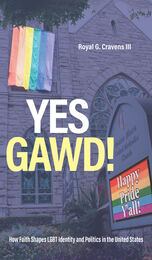
Cravens also demonstrates the mobilizing power of faith for LGBT people by contrasting the effects of participation in faith and secular communities on political activism. He explores how factors such as coming out, race, and LGBT-affirming churches influence political attitudes and behavior and explains how the development of LGBT politico-religious activism provides opportunities for LGBT people to organize politically.
Ultimately, Cravens provides a cohesive account of how religion acts as a catalyst for and facilitator in the political development of LGBT people in the United States. In the process, he shows that there is room for both religion in LGBT communities and LGBT people in religious communities.

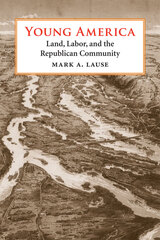
Rooting the movement in contemporary economic structures and social ideology, Young America examines this urban and working-class "agrarianism," demonstrating how the political preoccupations of this movement transformed socialism by drawing its adherents from communitarian preoccupations into political action. The alliance of the NRA's land reformers and radical abolitionists led unprecedented numbers to petition Congress and established the foundations of what became the new Republican Party, promising "Free Soil, Free Labor, Free Men."
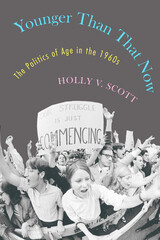
Some in the New Left were dubious of this strategy and asked how it might damage long-term progress. Young feminists and people of color were particularly quick to question the idea that age alone was enough to sustain a movement. And the media often presented young people as impulsive and naive, undermining their political legitimacy. In tracing how "youth" took on multiple meanings as the 1960s progressed, Scott demonstrates the power of this idea to both promote and hinder social change.
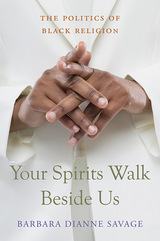
Even before the emergence of the civil rights movement with black churches at its center, African American religion and progressive politics were assumed to be inextricably intertwined. In her revelatory book, Barbara Savage counters this assumption with the story of a highly diversified religious community whose debates over engagement in the struggle for racial equality were as vigorous as they were persistent. Rather than inevitable allies, black churches and political activists have been uneasy and contentious partners.
From the 1920s on, some of the best African American minds—W. E. B. Du Bois, Carter G. Woodson, Benjamin Mays, Nannie Helen Burroughs, Mary McLeod Bethune, Charles S. Johnson, and others—argued tirelessly about the churches’ responsibility in the quest for racial justice. Could they be a liberal force, or would they be a constraint on progress? There was no single, unified black church but rather many churches marked by enormous intellectual, theological, and political differences and independence. Yet, confronted by racial discrimination and poverty, churches were called upon again and again to come together as savior institutions for black communities.
The tension between faith and political activism in black churches testifies to the difficult and unpredictable project of coupling religion and politics in the twentieth century. By retrieving the people, the polemics, and the power of the spiritual that animated African American political life, Savage has dramatically demonstrated the challenge to all religious institutions seeking political change in our time.
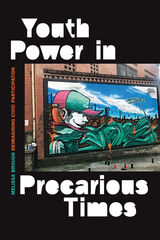
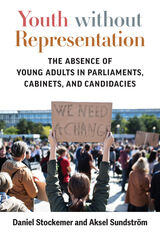
Officeholders in contemporary parliaments and cabinets are more likely than not to be male, wealthy, middle-aged or older, and from the dominant ethnicity, whereas young adults have an insufficient presence in political office. Young adults—those aged 35 years or under—comprise a mere ten percent of all parliamentarians globally, and three percent of all cabinet members. Compared to their presence in the world’s population, this age group faces an underrepresentation of one to three in parliament and one to ten in cabinet. In this book, Stockemer and Sundström provide a holistic account of youths’ marginalization in legislatures, cabinets, and candidacies for office through a comparative lens. They argue that youths’ underrepresentation in political office constitutes a democratic deficit and provide ample evidence for why they think that youth must be present in politics at much higher rates. They further embed this book within what they label a vicious cycle of political alienation, which involves the declining political sophistication of the young, their waning electoral participation, and their insufficient of representation in office. Empirically, the authors combine a global focus with in-depth studies, discussing the country-level, party-level, and individual-level factors that bar young adults’ entry to positions of political power. This is the first comprehensive book on youth representation and it has relevance for those broadly interested in issues of representation, democracy, inequality, and comparative politics.
READERS
Browse our collection.
PUBLISHERS
See BiblioVault's publisher services.
STUDENT SERVICES
Files for college accessibility offices.
UChicago Accessibility Resources
home | accessibility | search | about | contact us
BiblioVault ® 2001 - 2024
The University of Chicago Press









